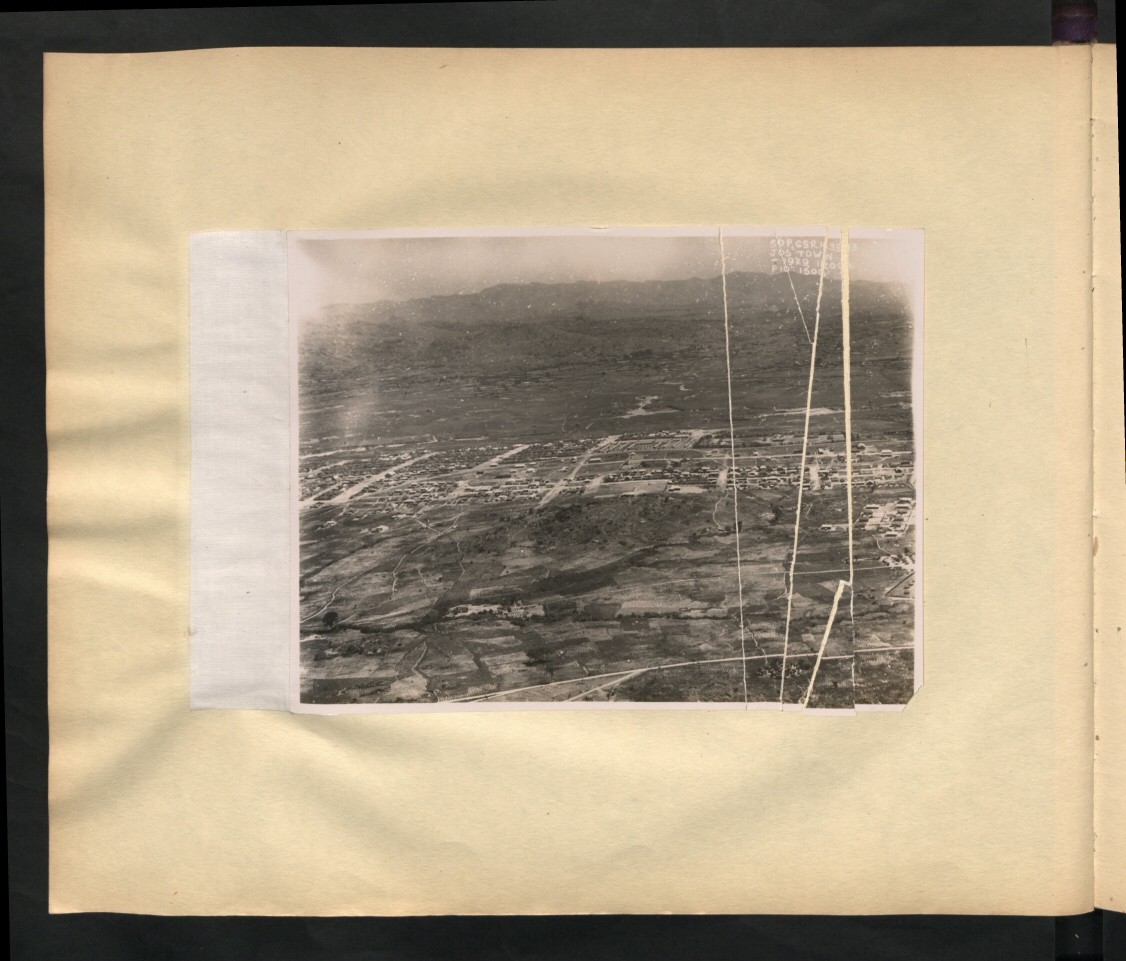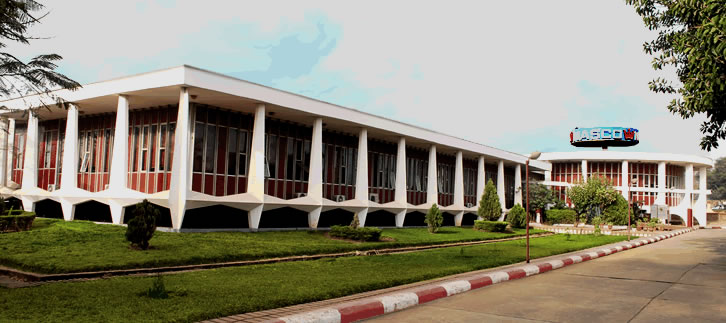|
Esther Ibanga
Esther Ibanga (born 31 March 1961) is a Nigerian pastor and founder of the "Women Without Walls Initiative". She won the 32nd Niwano Peace Prize for promoting peace among people of different ethnic groups and religions in Jos, Nigeria.Esther Abimiku Ibanga, Founder and president of The Women Without Walls Initiative to receive the Niwano Peace Prize - Niwano Peace Foundation, Retrieved 4 February 2016 Life Esther Ibanga was born on 31 March 1961 to Abumadga Auta and Mariamu Abimiku. She was the seventh of ten children and one of eight daughters. She is from Kagbu; Nasarawa Eggon Local Government Area of |
Niwano Peace Prize
The Niwano Peace Prize is given to honor and encourage those devoting themselves to interreligious co-operation in the cause of peace and to make their achievements known. Its foundation hopes that the prize will further promote interreligious co-operation for peace and lead to the emergence of more people devoting themselves to this cause. The award is given annually and consists of a certificate, a gold medal, and 20 million yen (roughly US$180,000). The screening committee, which decides the recipients, is made up of religious leaders of international stature. They select the recipient from candidates who are nominated by religious leaders and others of intellectual stature around the world. The Tokyo-based Niwano Peace Foundation was initiated by the Japanese citizen Nikkyō Niwano, founder of the Buddhist lay organization Risshō Kōsei Kai; he was one of the few non-Christian observers of the Second Vatican Council. His son, Nichiko Niwano, is his successor as chairman of th ... [...More Info...] [...Related Items...] OR: [Wikipedia] [Google] [Baidu] |
Central Bank Of Nigeria
The Central Bank of Nigeria (CBN) is the central bank and apex monetary authority of Nigeria established by the CBN Act of 1958 and commenced operations on 1 July 1959. The major regulatory objectives of the bank as stated in the CBN Act are to: maintain the external reserves of the country, promote monetary stability and a sound financial environment, and act as a banker of last resort and financial adviser to the federal government. The central bank's role as lender of last resort and adviser to the federal government has sometimes pushed it into murky regulatory waters. After the end of imperial rule the desire of the government to become pro-active in the development of the economy became visible especially after the end of the Nigerian civil war, the bank followed the government's desire and took a determined effort to supplement any show shortfalls, credit allocations to the real sector. The bank became involved in lending directly to consumers, contravening its original ... [...More Info...] [...Related Items...] OR: [Wikipedia] [Google] [Baidu] |
People From Nasarawa State
A person ( : people) is a being that has certain capacities or attributes such as reason, morality, consciousness or self-consciousness, and being a part of a culturally established form of social relations such as kinship, ownership of property, or legal responsibility. The defining features of personhood and, consequently, what makes a person count as a person, differ widely among cultures and contexts. In addition to the question of personhood, of what makes a being count as a person to begin with, there are further questions about personal identity and self: both about what makes any particular person that particular person instead of another, and about what makes a person at one time the same person as they were or will be at another time despite any intervening changes. The plural form "people" is often used to refer to an entire nation or ethnic group (as in "a people"), and this was the original meaning of the word; it subsequently acquired its use as a plural form of per ... [...More Info...] [...Related Items...] OR: [Wikipedia] [Google] [Baidu] |
Nigerian Clergy
Nigerians or the Nigerian people are citizens of Nigeria or people with ancestry from Nigeria. The name Nigeria was taken from the Niger River running through the country. This name was allegedly coined in the late 19th century by British journalist Flora Shaw, who later married Baron Frederick Lugard, a British colonial administrator. ''Nigeria'' is composed of various ethnic groups and cultures and the term Nigerian refers to a citizenship-based civic nationality. Nigerians derive from over 250 ethnic groups and languages.Toyin Falola. ''Culture and Customs of Nigeria''. Westport, Connecticut, USA: Greenwood Press, 2001. p. 4. Though there are multiple ethnic groups in Nigeria, economic factors result in significant mobility of Nigerians of multiple ethnic and religious backgrounds to reside in territories in Nigeria that are outside their ethnic or religious background, resulting in the mixing of the various ethnic and religious groups, especially in Nigeria's cities.Toyin Fa ... [...More Info...] [...Related Items...] OR: [Wikipedia] [Google] [Baidu] |
1961 Births
Events January * January 3 ** United States President Dwight D. Eisenhower announces that the United States has severed diplomatic and consular relations with Cuba ( Cuba–United States relations are restored in 2015). ** Aero Flight 311 (Koivulahti air disaster): Douglas DC-3C OH-LCC of Finnish airline Aero crashes near Kvevlax (Koivulahti), on approach to Vaasa Airport in Finland, killing all 25 on board, due to pilot error: an investigation finds that the captain and first officer were both exhausted for lack of sleep, and had consumed excessive amounts of alcohol at the time of the crash. It remains the deadliest air disaster to occur in the country. * January 5 ** Italian sculptor Alfredo Fioravanti marches into the U.S. Consulate in Rome, and confesses that he was part of the team that forged the Etruscan terracotta warriors in the Metropolitan Museum of Art. ** After the 1960 military coup, General Cemal Gürsel forms the new government of Turkey (25th gove ... [...More Info...] [...Related Items...] OR: [Wikipedia] [Google] [Baidu] |
Living People
Related categories * :Year of birth missing (living people) / :Year of birth unknown * :Date of birth missing (living people) / :Date of birth unknown * :Place of birth missing (living people) / :Place of birth unknown * :Year of death missing / :Year of death unknown * :Date of death missing / :Date of death unknown * :Place of death missing / :Place of death unknown * :Missing middle or first names See also * :Dead people * :Template:L, which generates this category or death years, and birth year and sort keys. : {{DEFAULTSORT:Living people 21st-century people People by status ... [...More Info...] [...Related Items...] OR: [Wikipedia] [Google] [Baidu] |
Chibok Schoolgirls Kidnapping
On the night of 14–15 April 2014, 276 mostly Christianity, Christian female students aged from 16 to 18 were kidnapped by the Islamic terrorism, Islamic terrorist group Boko Haram from the Government Girls Secondary School at the town of Chibok in Borno State, Nigeria. Prior to the raid, the school had been closed for four weeks due to deteriorating security conditions, but the girls were in attendance in order to take final exams in physics. 57 of the schoolgirls escaped immediately following the incident by jumping from the trucks on which they were being transported, and others have been rescued by the Nigerian Armed Forces on various occasions. Hopes have been raised that the 219 remaining girls might be released, however some girls are believed to be dead. Amina Ali (hostage), Amina Ali, one of the missing girls, was found in May 2016. She claimed that the remaining girls were still there, but that six had died. As of 14 April 2021, seven years after the initial kidnappi ... [...More Info...] [...Related Items...] OR: [Wikipedia] [Google] [Baidu] |
2017 Halifax International Security Forum (38504448381)
Seventeen or 17 may refer to: *17 (number), the natural number following 16 and preceding 18 * one of the years 17 BC, AD 17, 1917, 2017 Literature Magazines * ''Seventeen'' (American magazine), an American magazine * ''Seventeen'' (Japanese magazine), a Japanese magazine Novels * ''Seventeen'' (Tarkington novel), a 1916 novel by Booth Tarkington *''Seventeen'' (''Sebuntiin''), a 1961 novel by Kenzaburō Ōe * ''Seventeen'' (Serafin novel), a 2004 novel by Shan Serafin Stage and screen Film * ''Seventeen'' (1916 film), an American silent comedy film *''Number Seventeen'', a 1932 film directed by Alfred Hitchcock * ''Seventeen'' (1940 film), an American comedy film *'' Eric Soya's '17''' (Danish: ''Sytten''), a 1965 Danish comedy film * ''Seventeen'' (1985 film), a documentary film * ''17 Again'' (film), a 2009 film whose working title was ''17'' * ''Seventeen'' (2019 film), a Spanish drama film Television * ''Seventeen'' (TV drama), a 1994 UK dramatic short starring Christ ... [...More Info...] [...Related Items...] OR: [Wikipedia] [Google] [Baidu] |
Jos Steel
Jos is a city in the north central region of Nigeria. The city has a population of about 900,000 residents based on the 2006 census. Popularly called "J-Town", it is the administrative capital and largest city of Plateau State. During British colonial rule, Jos was an important centre for tin mining and is the trading hub of the state as commercial activities are steadily increasing. History The earliest known settlers of the land that would come to be known as Nigeria were the Nok people ( BCE), skilled artisans from around the Jos area who mysteriously vanished in the late first millennium. According to the historian Sen Luka Gwom Zangabadt, the area known as Jos today was inhabited by indigenous ethnic groups who were mostly farmers. According to Billy J. Dudley, the British colonialists used direct rule for the indigenous ethnic groups on the Jos Plateau since they were not under the Fulani emirates where indirect rule was used. According to the historian Samuel ... [...More Info...] [...Related Items...] OR: [Wikipedia] [Google] [Baidu] |
Jos, Nigeria
Jos is a city in the north central region of Nigeria. The city has a population of about 900,000 residents based on the 2006 census. Popularly called "J-Town", it is the administrative capital and largest city of Plateau State. During British colonial rule, Jos was an important centre for tin mining and is the trading hub of the state as commercial activities are steadily increasing. History The earliest known settlers of the land that would come to be known as Nigeria were the Nok people ( BCE), skilled artisans from around the Jos area who mysteriously vanished in the late first millennium. According to the historian Sen Luka Gwom Zangabadt, the area known as Jos today was inhabited by indigenous ethnic groups who were mostly farmers. According to Billy J. Dudley, the British colonialists used direct rule for the indigenous ethnic groups on the Jos Plateau since they were not under the Fulani emirates where indirect rule was used. According to the historian Samuel N Nwabar ... [...More Info...] [...Related Items...] OR: [Wikipedia] [Google] [Baidu] |
University Of Jos
The University of Jos, abbreviated as Unijos, is a Federal University in Jos, Plateau State, central Nigeria. History What became the University of Jos was established in November 1971 from the satellite campus of the University of Ibadan. The first students were admitted in January 1972 as pre-degree students and the first Bachelor of Arts degree program began in October 1973. In October 1975, the then military government under General Murtala Mohammed established the Unijos as a separate institution. The first Vice-Chancellor of the Unijos was Professor Gilbert Onuaguluchi. Classes began at the newly reorganized University of Jos in October 1976 with 575 students spreading over the existing four faculties of Arts and Social Sciences, Education, Natural Sciences and Medical Sciences. Post-graduate programs were added in 1977. By 1978 Faculties of Law and Environmental Sciences were established and the Faculties of Arts and Social Sciences were separated. In 2003, the ... [...More Info...] [...Related Items...] OR: [Wikipedia] [Google] [Baidu] |
.jpg)

_1938.jpg)



.jpg)